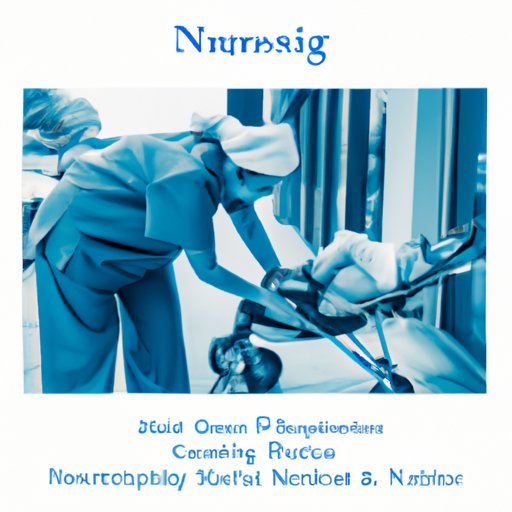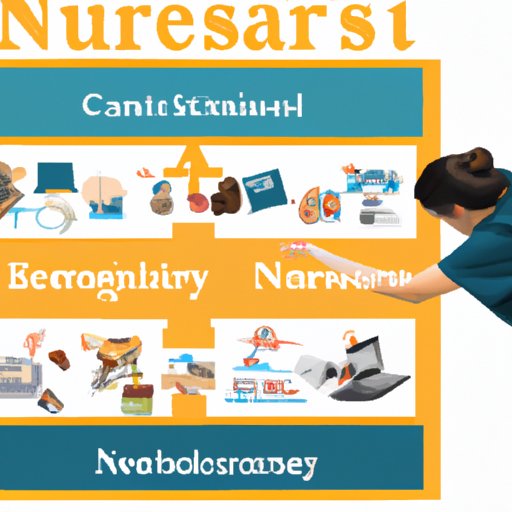Introduction
Nursing science is an interdisciplinary field that focuses on improving patient care and health outcomes through evidence-based research. It combines knowledge from the biological sciences, psychology, sociology, and other disciplines to inform clinical practice and healthcare delivery. Pursuing a nursing science major can be a rewarding experience, providing students with the opportunity to gain valuable skills and knowledge to help them better serve their patients and communities.
History and Development of Nursing Science as a Major
The history of nursing science as a major can be traced back to the early 20th century when nurses began to use scientific methodology to improve the quality of care they provided. In the 1950s, nurses began to pursue higher levels of education in order to better understand the complexities of the healthcare system and provide more comprehensive care to patients. By the 1970s, nursing science had become an accepted discipline within the healthcare profession and universities began offering nursing science degrees.
Today, nursing science is a popular major at many universities and colleges. Nursing science majors have the opportunity to study a wide range of topics, such as anatomy and physiology, pharmacology, nutrition, health assessment, and pathophysiology. They also have the opportunity to gain hands-on experience in clinical settings, allowing them to apply their knowledge in real-world situations.

Career Opportunities Available to Nursing Science Majors
Nursing science majors can find employment in a variety of settings, including hospitals, nursing homes, doctor’s offices, home health agencies, and public health departments. Common job titles for nursing science majors include registered nurse (RN), nurse practitioner (NP), nurse educator, nurse administrator, and nurse researcher. These professionals are responsible for providing direct patient care, educating patients and families about health and wellness, managing personnel and resources, and conducting research to improve patient outcomes.
Nursing science majors can also pursue advanced degrees in order to specialize in a particular area of nursing. Specialty areas may include gerontology, pediatrics, women’s health, critical care, and mental health. With an advanced degree, nursing science majors can further their career by becoming a nurse practitioner, nurse anesthetist, or nurse midwife.

Challenges Faced by Nursing Science Majors
Pursuing a nursing science major can be both rewarding and challenging. Students may face academic challenges, such as understanding complex concepts and mastering difficult coursework. Financial challenges can also be an issue, as tuition and other expenses can be expensive. Additionally, nursing science majors may face social challenges, such as balancing school, work, and family responsibilities.
Despite these challenges, many nursing science majors find success. A recent survey of nursing science graduates found that 94% were employed within six months of graduating, and 81% said they felt prepared for their jobs. The same survey also found that 87% of respondents felt their degree had helped them develop the skills necessary to succeed in the nursing profession.

Impact of Nursing Science on Healthcare Delivery
Nursing science has had a profound impact on healthcare delivery. Through evidence-based research, nursing science has identified strategies to improve patient outcomes, reduce medical errors, and increase access to care. For example, research suggests that nurse-led interventions can reduce hospital readmission rates, improve medication adherence, and reduce the risk of falls in older adults.
In addition, nursing science has helped to shape policy decisions related to healthcare. Nurses are often at the forefront of advocating for improved healthcare services and developing innovative approaches to care delivery. Through their advocacy efforts, nurses are helping to ensure that all members of society have access to quality, affordable healthcare.
Conclusion
Nursing science is an important field that has the potential to dramatically improve healthcare delivery. Pursuing a nursing science major can provide students with the knowledge and skills needed to make a positive impact in their communities and beyond. Although it can be challenging, the rewards of a nursing science major far outweigh the costs. By embracing the opportunities presented to them, nursing science majors have the potential to make a lasting difference in the lives of their patients and the world.
(Note: Is this article not meeting your expectations? Do you have knowledge or insights to share? Unlock new opportunities and expand your reach by joining our authors team. Click Registration to join us and share your expertise with our readers.)
